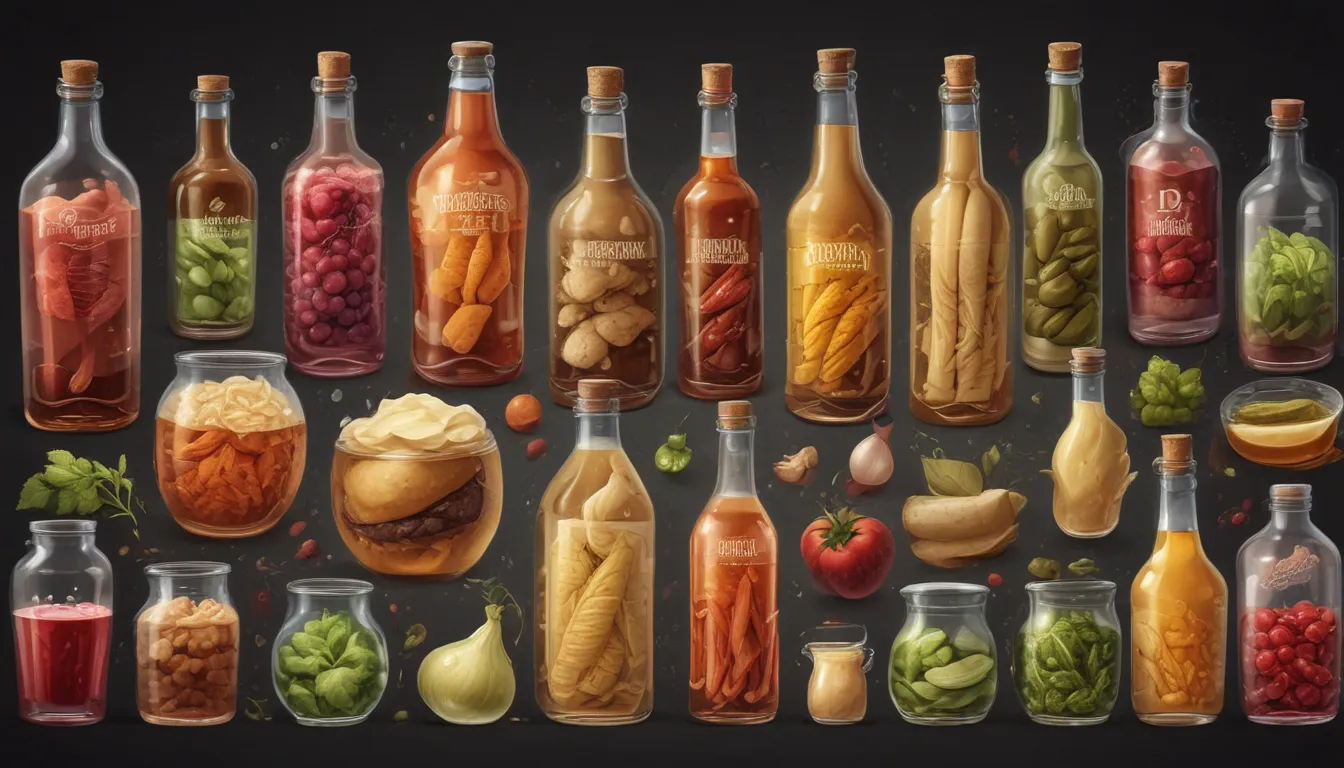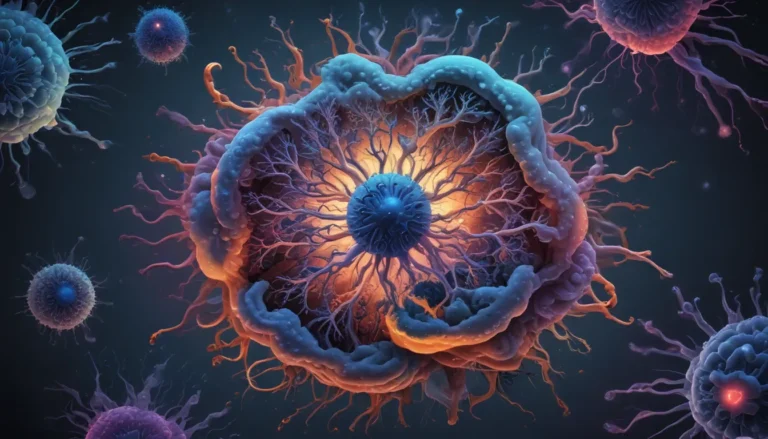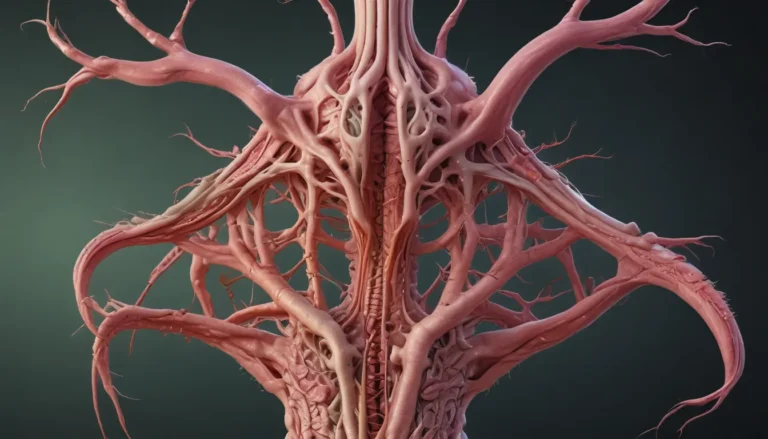A Note About Images: The images used in our articles are for illustration purposes only and may not exactly match the content. They are meant to engage readers, but the text should be relied upon for accurate information.
Are you ready to unlock the secrets of fermentation and immerse yourself in the captivating world of microorganisms? From the production of delicious foods and beverages to the creation of essential products like antibiotics and biofuels, fermentation plays a vital role in shaping our world. In this article, we will delve into 10 unbelievable facts about fermentation that highlight its diverse applications and significance in both biology and beyond. Get ready for a journey through the intricate processes of fermentation and discover the extraordinary ways in which it impacts our lives.
Unveiling the Magic of Fermentation
Fermentation is a Natural Process
At its core, fermentation is a natural metabolic process that occurs in various organisms, including bacteria, yeasts, plants, and fungi. This chemical reaction converts carbohydrates such as sugars and starches into alcohol or acids, showcasing the transformative power of microorganisms in nature.
A Time-Honored Tradition
Dating back thousands of years, fermentation has been a cornerstone of human civilization, paving the way for the creation of staple foods and beverages. Ancient civilizations like the Egyptians, Greeks, and Romans harnessed the power of fermentation to craft beer, wine, and bread, laying the foundation for culinary traditions that endure to this day.
Enhancing Flavor Profiles
The unique flavors of beloved foods like cheese, chocolate, and pickles can be attributed to the wonders of fermentation. During the fermentation process, microorganisms produce enzymes that break down proteins and carbohydrates, giving rise to a myriad of complex and delightful flavors that tantalize our taste buds.
Fermentation in Action
The Alchemy of Alcoholic Beverages
One of the most well-known applications of fermentation is in the production of alcoholic beverages. When yeast ferments sugars in fruits or grains, it produces alcohol and carbon dioxide, leading to the creation of beloved libations such as beer, wine, and spirits that bring joy to countless individuals worldwide.
A Gateway to Antibiotics
The production of essential antibiotics like penicillin and streptomycin relies on microbial fermentation. By cultivating specific strains of bacteria or fungi that naturally produce these antibiotics, we can harness the power of fermentation to combat infectious diseases and save lives.
Nutritional Boost
Fermentation has the remarkable ability to enhance the nutritional value of foods by increasing the availability and absorption of essential nutrients. Fermented dairy products like yogurt and kefir are rich in probiotics, beneficial bacteria that promote digestion and support gut health, making them a valuable addition to a balanced diet.
Beyond the Plate: Applications of Fermentation
Fueling the Future
The production of biofuels such as ethanol and biogas relies on fermentation technology to convert organic materials like corn, sugarcane, and algae into renewable energy sources. By harnessing the power of fermentation, we can pave the way towards a more sustainable and eco-friendly future.
Preserving the Bounty
Fermentation is an effective method of food preservation, extending the shelf life of foods like sauerkraut, kimchi, and salami through the production of lactic acid and other organic acids. These compounds create an acidic environment that inhibits the growth of harmful bacteria, ensuring that fermented foods remain safe and flavorful.
Waste Not, Want Not
Microbial fermentation is a cornerstone of wastewater treatment processes, breaking down organic matter and converting it into biogas. By harnessing the power of fermentation in wastewater treatment plants, we can minimize the environmental impact of waste disposal and promote sustainability in our communities.
The Art of Breadmaking
Rising to the Occasion
No discussion of fermentation would be complete without mentioning its crucial role in breadmaking. When yeast ferments sugars in dough, it produces carbon dioxide gas, causing the dough to rise and giving bread its characteristic light and airy texture. This process, known as leavening, is a testament to the power of fermentation in creating beloved staples of our diets.
Reflecting on the Wonders of Fermentation
In conclusion, fermentation is a captivating biological process that has shaped human history and continues to play a pivotal role in our daily lives. From the creation of flavorful foods and beverages to the production of essential products like antibiotics and biofuels, fermentation showcases the awe-inspiring potential of microorganisms in transforming our world.
Fermentation invites us to embrace the power of nature’s processes in creating diverse and delightful products that enrich our lives. So, whether you’re savoring a slice of sourdough bread or indulging in a glass of wine, take a moment to appreciate the remarkable journey of fermentation that has brought these creations to your table.
Embracing Curiosity: FAQs
Q: What is fermentation?
A: Fermentation is a metabolic process involving the conversion of sugars into acids, alcohol, or gases by microorganisms like bacteria and yeast.
Q: What are some examples of fermented foods?
A: Examples of fermented foods include yogurt, sauerkraut, kimchi, tempeh, and kombucha.
Q: How does fermentation enhance the taste of food and beverages?
A: Fermentation breaks down sugars, producing byproducts like acids and alcohol that contribute to the unique flavors of fermented foods and beverages.
Q: Is fermentation a natural process?
A: Yes, fermentation is a natural process that occurs when microorganisms consume sugars in the absence of oxygen.
Q: What role does fermentation play in food preservation?
A: Fermentation preserves food by creating an acidic or alcoholic environment that inhibits the growth of harmful bacteria, extending the shelf life of fermented foods.
Q: Can fermentation be used to make non-alcoholic drinks?
A: Yes, fermentation can be used to create non-alcoholic beverages like kombucha and water kefir, showcasing its versatility beyond traditional applications.
Journey of Discovery
The realm of fermentation is a boundless landscape of exploration and innovation, offering a window into the wonders of the natural world. As we unravel the mysteries of fermentation, we gain a deeper appreciation for the intricate processes that shape our food, our health, and our environment. Join us on this remarkable journey of discovery as we celebrate the art and science of fermentation and its remarkable impact on our world.






